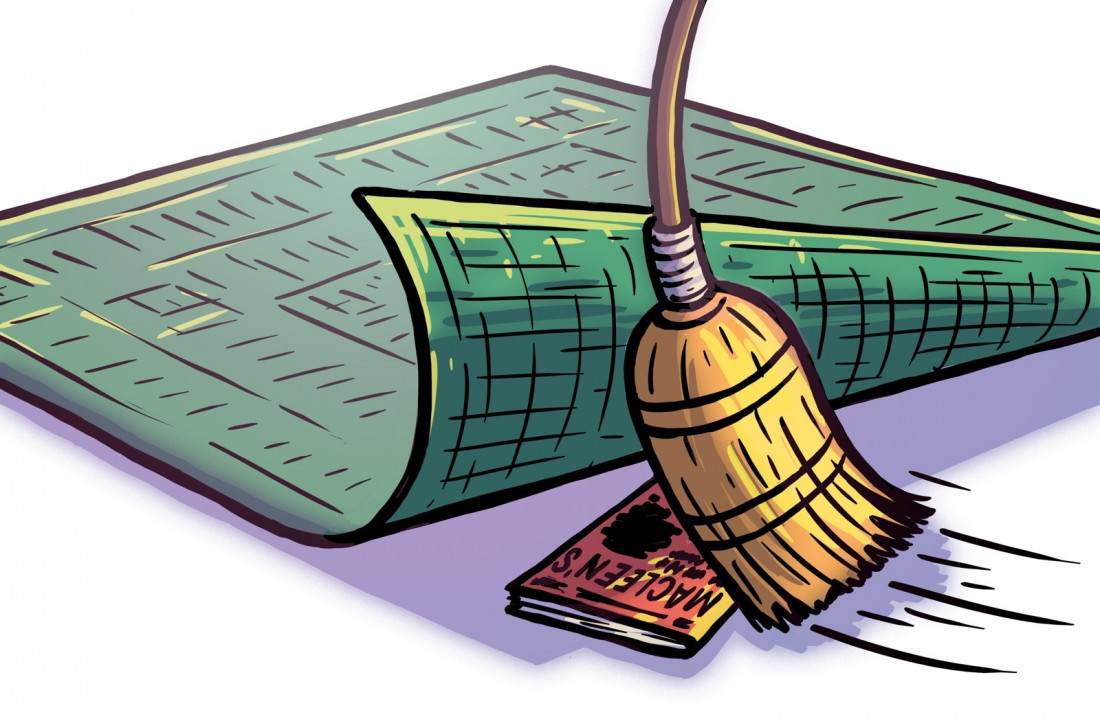Summit ignores systemic inequities
The Mayor’s actions fall short of his words
Brian Bowman’s opening remarks to his National Summit on Racial Inclusion, an event organized in the response to the Maclean’s article exposing Winnipeg’s racism, set up the tone of the event and revealed to skeptics a lack of understanding of the structural systems of racism.
“Facing painful truths; changing old attitudes; and embracing the people… and the practices that are helping bring about change now... and developing and sharing new ideas to make Canada truly inclusive… This is the hard work we must do to ensure dignity and opportunity for every person in this country and to reclaim our highest aspirations as a nation.”
On the surface Bowman’s statement sounds admirable. Certainly we ought to heed the lessons of our shared histories, and everyone deserves dignity and an equitable share in society. We also, however, need to look critically on our past efforts.
Consider this in light of the infamous White Paper of 1969, officially known as the “Statement of the Government on Indian Policy” - a highly controversial report that was harshly criticized by First Nations leaders.
The document claimed to have noble goals of uniting Canada and bettering the lives of indigenous peoples while simultaneously attempting to eliminate constitutional protections and ignoring the sovereignty of indigenous nations. Eventually it was shot down and is remembered as a failed attempt to rejig the colonial control over indigenous peoples into a liberal framework that was palatable for the 20th century.
It is with this context that we need to analyze Bowman’s statements and the goals for the summit.
Who exactly is the summit attempting to benefit?
Is the goal to improve the lives of the most marginalized, or is it a PR campaign to make suburban liberals feel better about themselves? Expensive entrance fees, spiffy branding and the lack of consultation with community organizers (as recently raised by grassroots organizer Tasha Spillett on the CKUW show Radio Free Winnipeg) leads one to believe it is the latter.
If the goal is sincere, I believe Mayor Bowman would be better served to offer some of that “bold” leadership that he promised during his election campaign.
Even the authors of the White Paper acknowledged that “Governments can set examples, but they cannot change the hearts of men.”
The primary focus of Bowman and so called “progressive” politicians ought to be dismantling the systems of economic and geographic inequity that are the source of our racism.
When the federal government neglected to commit to Shoal Lake 40’s campaign to build a road connecting them to the Trans-Canada Highway what did Brian Bowman have to say to his contemporaries in Ottawa? Sure the City made its cash commitment, but it did little more than shrug when the feds failed to act.
Why haven’t we heard any appeals to Minister of Aboriginal Affairs and Northern Development, Bernard Valcourt? Or to Prime Minister Stephen Harper? Especially in an election year, where the future Prime Minister and cabinet ministers will dictate how negotiations with Shoal Lake proceed.
Sadly, I suspect that personal aspirations and political cautiousness prevent the Mayor from being truly bold. So, instead we get a politically safe response with very little substance.
Greg Gallinger is a freelance photographer, vegan food enthusiast, purveyor of half-witted commentary and reluctant citizen of the global technocracy.
Published in Volume 70, Number 4 of The Uniter (October 1, 2015)







